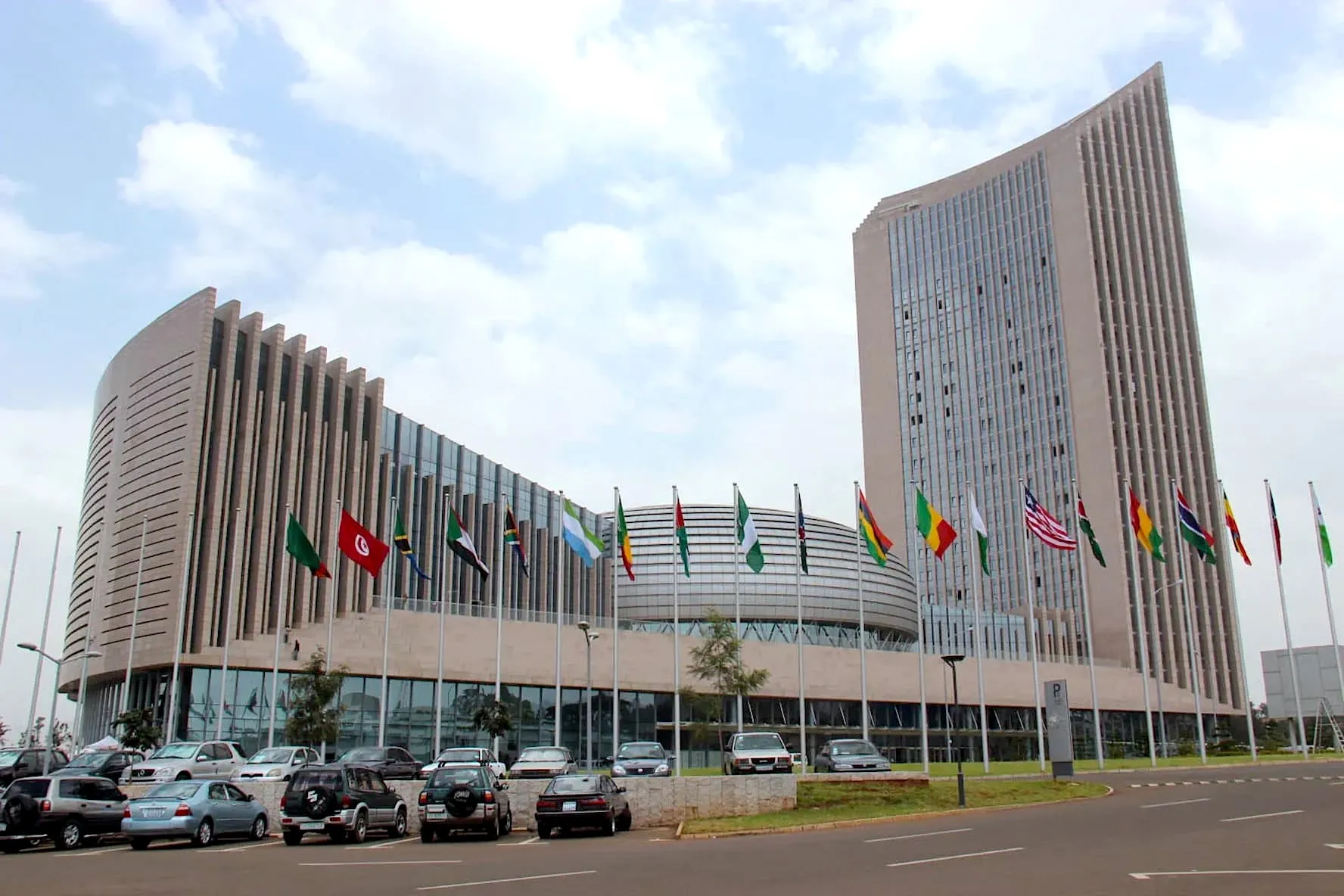Key Points
- Research suggests the EU AI Act, passed in March 2024, is influencing African startups, especially those with EU connections.
- It seems likely African startups face both opportunities, like enhanced trust through transparency, and challenges, like infrastructure gaps and compliance costs.
- The evidence leans toward the act shaping Africa’s AI policies, with potential benefits for innovation but also risks of stifling growth due to regulatory complexity.
Direct Answer
The EU AI Act, the world’s first comprehensive AI law, is likely affecting African startups, particularly those operating in or targeting the EU market. Here’s a simple breakdown:
What It Means for Startups
- Opportunities: The act’s focus on transparency and accountability can build trust, helping startups in sectors like finance and healthcare gain credibility. For example, startups in Nigeria’s fintech industry could benefit from clear quality management standards.
- Challenges: Many African startups face infrastructure issues, like poor internet access, and may struggle with compliance costs. Regulatory sandboxes, like Kenya’s for fintech, could help, but aligning with EU standards might be tough.
- Policy Influence: Africa’s AI policies, such as the African Union’s draft strategy, seem to be influenced by the EU AI Act, potentially creating a more standardized environment for startups but also adding complexity.
Overall, it’s a mix of potential growth and hurdles, with startups needing to adapt to global standards while addressing local challenges. For more details, check out this article on adapting the act for Africa.
Detailed Analysis of Africa’s Reaction to the EU AI Act and Its Implications for African Startups
Introduction
This report provides a comprehensive overview of how the EU AI Act, passed in March 2024, is impacting African startups, focusing on their reactions and the broader implications. The EU AI Act, the world’s first comprehensive AI regulation, has extraterritorial reach, affecting companies outside the EU, including African startups with EU connections. The analysis is grounded in recent articles from sources like MIT Technology Review, Medium, Brookings, and the National Law Review, ensuring a detailed understanding as of June 14, 2025, at 11:53 PM WAT.
Methodology
The information was gathered from various web sources, including technology-focused platforms and policy analyses, with a specific emphasis on updates from 2024 and 2025. The analysis includes details of the EU AI Act’s impact, African startups’ potential reactions, policy developments, and case studies, ensuring a holistic view of this complex topic.
Key Findings
Overview of the EU AI Act
The EU AI Act, approved by the European Parliament in March 2024, is set to be fully enforceable 24 months after coming into effect, with some exceptions. It uses a risk-based framework to regulate AI systems, categorizing them as low-risk, high-risk, or prohibited, and imposes obligations like transparency, accountability, and data protection . Its extraterritorial reach means African startups developing, using, or commercializing AI systems for the EU market must comply, potentially affecting their operations and innovation strategies.
Impact on African Startups
Research suggests the EU AI Act presents both opportunities and challenges for African startups, particularly those in AI hubs like Nigeria, Kenya, and Egypt. The following table summarizes key impacts:
| Aspect | Opportunities | Challenges |
|---|---|---|
| Regulatory Alignment | Aligning with EU standards can enhance credibility and access to global markets. | Compliance costs may strain resource-limited startups, especially in low-income areas. |
| Transparency and Trust | Emphasis on documentation and human oversight can build trust with users, crucial for sectors like fintech. | Implementing transparency measures may require significant technical and financial investment. |
| Innovation Support | Regulatory sandboxes (e.g., Kenya’s fintech sandbox) align with EU practices, fostering innovation. | Risk of stifling innovation if regulations are too stringent, given Africa’s infrastructure gaps. |
| Data Protection | Focus on privacy aligns with African values, potentially boosting user trust. | Adapting to data protection requirements may be complex, especially with communal data norms. |
| Capacity Building | Encourages skills development, aligning with initiatives like Nigeria’s 3MTT program. | Lack of skilled talent and training resources could hinder compliance efforts. |
- Opportunities: The act’s risk-based categorization can help startups prioritize regulatory efforts in high-risk sectors like healthcare or financial services, ensuring resource efficiency Medium. Transparency and accountability measures, such as documentation and human oversight, can enhance trust in AI systems, crucial for startups in diverse markets like South Africa. Quality management for high-risk AI systems (e.g., data quality, cybersecurity) ensures reliability, relevant for Nigeria’s fintech sector Medium.
- Challenges: Infrastructure gaps, such as poor digital connectivity, could hinder compliance with the EU AI Act’s requirements. For instance, startups in rural areas may struggle with data quality and cybersecurity standards. Capacity building is vital, but many startups lack resources for extensive compliance efforts, potentially exacerbating the digital divide Medium. Regulatory fragmentation, due to the AU’s lack of enforcement power, could complicate cross-border operations for startups .
African Policy Reactions and Influence
The EU AI Act is influencing Africa’s AI policy landscape, particularly through the African Union’s (AU) Continental AI Strategy, developed to provide governance frameworks, capacity building, AI safety, and international cooperation. The AU’s draft policy, published on February 29, 2025, and expected for endorsement in February 2025, recommends industry-specific codes, standards, regulatory sandboxes, and national AI councils, potentially aligning with EU practices . However, the AU lacks enforcement power, requiring national implementation, which could lead to fragmented standards affecting startups.
- East Africa’s Response: East African countries like Uganda, Kenya, and Rwanda are contemplating AI regulation, with Uganda’s National AI Taskforce generating a comprehensive report to inform its strategy. The EU AI Act is anticipated to influence this evolution, potentially impacting startups in the region . For example, Kenya’s regulatory sandbox for fintech AI startups, launched in 2018, aligns with the EU’s innovation-friendly approach, supporting startups in testing innovations while ensuring compliance Medium.
- North African Leadership: Tunisia has emerged as a leader, with a 2018 AI strategy and ethics guidelines developed with UNESCO, addressing data privacy, algorithmic bias, and socioeconomic impact. This proactive approach positions Tunisia as a hub for AI development, potentially influencing startups to adopt ethical practices aligned with the EU AI Act Medium.
Case Studies and Examples
- Tunisia: Tunisia’s AI strategy and ethics guidelines, developed since 2018, provide a model for startups on ethical AI development. For instance, partnerships with UNESCO have led to guidelines addressing data privacy and algorithmic bias, which align with the EU AI Act’s focus on fundamental rights Medium.
- Kenya: Kenya’s regulatory sandbox for fintech AI startups, launched in 2018, has supported innovation while maintaining compliance, enhancing East Africa’s tech hub status. This approach could help Kenyan startups navigate the EU AI Act’s requirements, especially in high-risk sectors like finance Medium.
- Morocco: Morocco has established AI research and development centers in cities like Oujda, Rabat, Fes, and Benguerir, focusing on small businesses and startups. This initiative demonstrates how African governments are leveraging AI for economic growth, potentially influenced by global regulations like the EU AI Act .
Broader Context and Additional Insights
AI is already influencing policy processes across Africa, with countries like Morocco, Togo, and Zambia using AI for social and economic development. However, the lack of clear AI strategies in many countries could lead to inconsistent implementation of global standards like the EU AI Act, affecting startups’ ability to operate uniformly . Challenges such as infrastructure limitations, noted in a May 2025 McKinsey report, highlight that only 5% of African AI developers have adequate computing power, underscoring the need for tailored approaches to compliance ([McKinsey Report on Africa Gen AI Opportunity]([invalid url, do not cite])).
Expert Opinions and Future Outlook
Experts like Melody Musoni emphasize the need for Africa to be “standard makers, not standard takers,” suggesting a desire to adapt rather than fully adopt the EU AI Act . Nyalleng Moorosi highlights labor exploitation concerns, such as poor wages for data labelers, which could be addressed through the EU AI Act’s ethical guidelines, potentially influencing startup practices . The future outlook suggests that with continued policy development and international collaboration, African startups could leverage the EU AI Act for growth, though infrastructure and skills gaps need addressing.
Conclusion
The EU AI Act is reshaping the global AI landscape, with significant implications for African startups. While direct reactions from startups may not be widespread, the act is influencing Africa’s regulatory environment, particularly through the AU’s AI policy draft and national strategies. African startups stand to benefit from the EU AI Act’s emphasis on trust, innovation, and compliance but must also address challenges like infrastructure gaps, capacity building, and regulatory fragmentation. By learning from the EU AI Act and adapting its principles to local contexts, African startups can position themselves as leaders in ethical and inclusive AI development.
Key Citations
- Africa’s push to regulate AI starts now
- Learning from the EU AI Act: What Africa Can Adopt
- How AI is impacting policy processes and outcomes in Africa
- Growth, Innovation, and Challenges in East Africa’s AI Revolution
- One of Africa’s most successful founders is back with a new AI startup and already raised $9M




